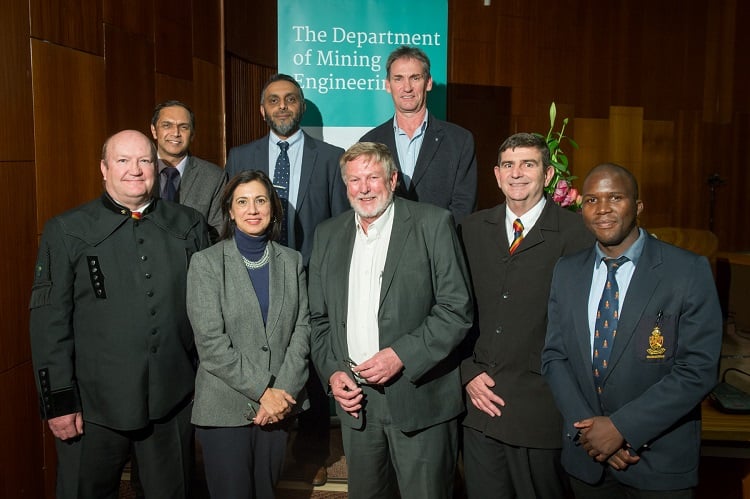Posted on May 29, 2017
A multidisciplinary Mining Resilience Research Centre (MRRC) was launched in the Department of Mining Engineering of the Faculty of Engineering, Built Environment and Information Technology at the University of Pretoria (UP) on Thursday, 25 May 2017. The focus of this Centre is on multi-disciplinary research activities within the mining industry and developing lasting partnerships with leading international research and academic institutions.
Prof Jan du Plessis, Sasol Chair in Health, Safety and Environment in the Department of Mining Engineering at UP, says that although mining faces severe challenges under the current economic conditions, it remains an important sector for growth and transformation in Africa. 'Issues around legacy, responsibility, impact and innovation need to be addressed in order to achieve a resilient mining industry in Africa. At the heart of any strategy to achieve resilience in African mining lies the requirement that the mining leaders of the future possess appropriate knowledge, capability, attitude and behaviour. The establishment of the MRRC is the result of thorough industry consultation and the main aim of this Centre is to provide modern approaches, world class facilities and globally relevant topics, making it possible for researchers to excel and for the industry to build capacity,' he says.
According to the World Bank (2016), Africa is home to about 30% of the world's mineral reserves, 10% of the world's oil, and 8% of the world's natural gas. In South Africa, the mining industry is responsible for an estimated 19% of all economic activity and supports at least another 25% of up and downstream economic activities. Despite this considerable wealth on the continent, it is plagued by poverty, social inequality and slow economic development. However, mining remains a key driver for growth and is inextricably linked to Africa's future – with mining comes employment and skills development, investment in education, the construction of infrastructure and the generation of much-needed revenue.
The MRRC is establishing multidisciplinary collaborations that will address, among other things:
Currently taking part in the multidisciplinary activities of the MRRC are the faculties of Humanities, Natural and Agricultural Sciences, Economic and Management Sciences, Engineering, Built Environment and Information Technology, and Law. The intention is that more UP faculties involved in mining research will eventually also take part in the MRRC activities, making it a fully interdisciplinary mining research centre. The MRRC is currently busy with six research projects in Engineering, Built Environment and Humanities.
As part of the Centre's strategic intent, it has and will continue to form partnerships with leading local and international universities. These will involve student and lecturer exchanges, joint research activities and opportunities for postgraduate studies in the various speciality fields.

Front, from left to right: Prof Ronny Webber-Youngman (HOD Mining Engineering), Prof Cheryl de la Rey (Vice Chancellor and Principal), Mr Rob Smart, Prof Jan du Plessis (Director: Mining Resilience Research Centre), Mr Larrance Ngwenyama (post-graduate student). Back: Prof Sunil Maharaj (Dean: EBIT), Mr Navin Singh (Manager Mining and Mineral resources, CSIR), Mr Chris Griffith (CEO Anglo American Platinum)
Copyright © University of Pretoria 2024. All rights reserved.
Get Social With Us
Download the UP Mobile App